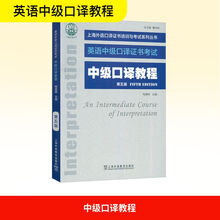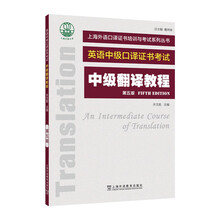Chapter 1 History and Approaches
第一章 心理学历史和学派
SUMMARY OF THIS CHAPTER
History and Approaches (2%~4%)
Psychology has evolved markedly since its inception as a discipline in 1879. There have been significant changes in the theories that psychologists use to explain behavior and mental processes. In addition, the methodology of psychological research has expanded to include a diversity of approaches to data gathering.
AP students in psychology should be able to do the following:
a) Recognize how philosophical and physiological perspectives shaped the development of psychological thought.
b) Describe and compare different theoretical approaches to explaining behavior:
ⅰ. Structuralism, functionalism, and behaviorism in the early years;
ⅱ. Gestalt, psychoanalytic/psychodynamic, and humanism emerging later;
ⅲ. Evolutionary, biological, cognitive, and biopsychosocial as more contemporary approaches.
c) Recognize the strengths and limitations of applying theories to explain behavior.
d) Distinguish the different domains of psychology (e.g., biological, clinical, cognitive, counseling, developmental, educational, experimental, human factors, industrial–organizational, personality, psychometric, social).
e) Identify major historical figures in psychology (e.g., Mary Whiton Calkins, Charles Darwin, Dorothea Dix, Sigmund Freud, G. Stanley Hall, William James, Ivan Pavlov, Jean Piaget, Carl Rogers, B. F. Skinner, Margaret Floy Washburn, John B. Watson, Wilhelm Wundt).
Edited from AP psychology description by the College Board
本章重点介绍两个方面的内容,其一是心理学派,其二是心理学观点。重点掌握学派理论及其代表人物。了解各心理学观点对人行为的解释和心理学的研究对象。
1. HISTORY OF PSYCHOLOGY 心理学历史
心理学派主要分为五大学派,见Fig 1.1:(1)内省(introspection);(2)完形心理学(gestalt psychology);(3)心理分析(psychoanalysis);(4) 行为主义(behaviorism);(5)多元观点(multiple perspectives)。
(1) Wave one—Introspection 学派之一——内省
Introspective theories were important in establishing the science of psychology, but they do not significantly influence current psychological thinking.内省理论对建立心理学科学来说是很重要的,但未能显著影响现代心理思维。
1) Structuralism结构主义
The idea that the mind operates by combining subjective emotions and objective sensations.主张意识通过主观情感和客观感觉共同起作用。
Structuralism is the analysis of the mind in terms of its basic elements.
Exam tip: Wilhelm Wundt set up the first psychological laboratory at Leipzig, Germany. He created theory of structuralism and published the principles of psychology.
2) Functionalism机能心理学
The idea that psychologists study the functions of consciousness rather than its structure.
Exam tip: William James created functionalism, its tradition endures in two modern-day fields: cognitive psychology which studies mental processes and evolutionary psychology which emphasizes the adaptiveness of behavior.
(2) Wave two—Gestalt psychology 学派之二——完形心理学/格式塔心理学
Gestalt psychology tried to examine a person’s total experience because the way we experience the world is more than just an accumulation of various perceptual experiences.
Gestalt theorists demonstrated that the whole experience is often more than just the sum of the parts of the experience.完形心理学家论证了整体经历往往大于部分经历的总和。
Max Wertheimer argued against dividing human thought and behavior into discrete structures.完形心理学家Max Wertheimer反对将人的思想和行为割裂为离散的结构。
(3) Wave three—Psychoanalysis 学派之三——精神分析
Psychoanalysis examines the unconscious mind through dream analysis, word association, and other psychoanalytic techniques to understand human thought and behavior truly.精神分析学派为了真实地理解人的思想和行为,通过梦的解析、词汇联想和其他的精神分析技术来检测潜意识。
Defense mechanism: psychological techniques that help us cope with anxiety and the pain of traumatic experiences. 防御机制:一种帮助我们处理焦虑和创伤性经历带来的痛苦的心理技术。
Sigmund Freud revolutionized psychology with his psychoanalytic theory. Freud believed he discovered the unconscious mind; this hidden part of us builds up over the years through repression. Sigmund Freud 的精神分析理论是革命性的心理学学说。他坚信发现了潜意识,隐藏在我们内心的潜意识是由于受到长期的压抑而建立起来的。
Exam tip: Sigmund Freud’s psychoanalytic theory has been criticized for being unscientific and creating unverifiable theories.
(4) Wave four—Behaviorism 学派之四——行为主义
Behaviorists maintained that psychologists should look at only behavior and causes of behavior— stimuli and responses— and not concern themselves with describing elements of consciousness. 行为心理学家坚持认为心理学家应该只关注行为和引起行为的原因——刺激和反应,不应该关注意识本身的描述元素。
Ivan Petrovich Pavlov’s research was devoted to the investigation of the conditioned reflex and the study of the brain. His ‘conditioning’ model had an enormous influence on western
behavioral psychology.
1) John B. Watson studied Ivan Petrovich Pavlov’s conditioned reflex theory and declared
that psychology must limit itself to observable phenomena, not unobservable conceptslike the unconscious mind. John B. Watson 研究了Ivan Petrovich Pavlov的条件反射理论,表明心理学必须局限于观察到的现象,而不应该涉及像潜意识这样的不可观察的概念。
2) B. F. Skinner expanded the basic ideas of behaviorism to include the idea of reinforcement—environmental stimuli that either encourage or discourage certain responses. B.F. Skinner 将行为主义的基本理念扩大,将强化理念——即环境刺激鼓励或不鼓励某种反应包含在内。
(5) Wave five—Multiple perspectives 学派之五—— 多元观点
Psychologists look at thought and behavior from multiple perspectives.心理学家从多元观点来看待思想和行为。
展开










